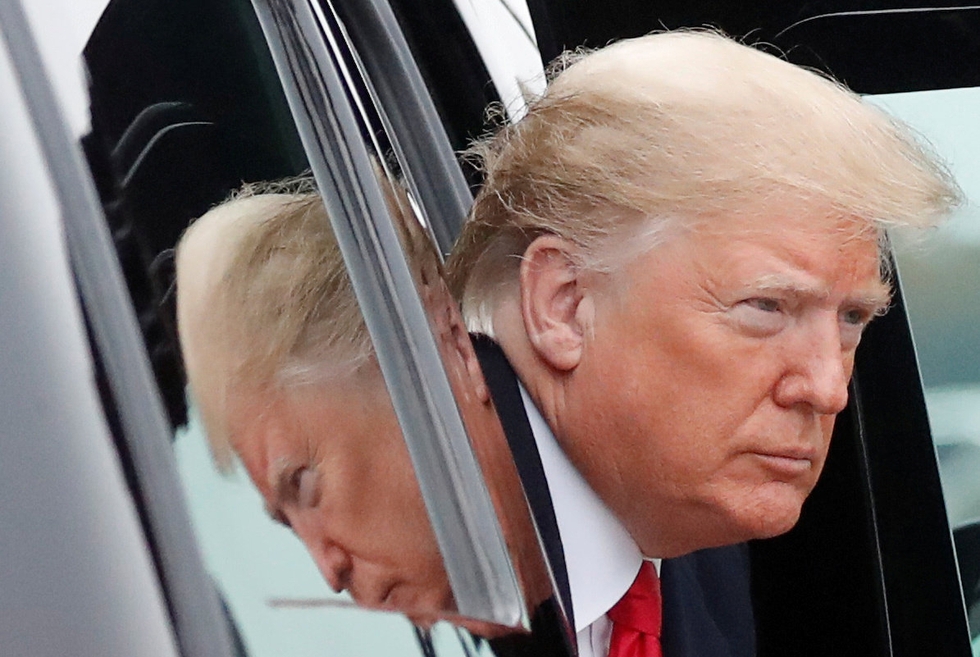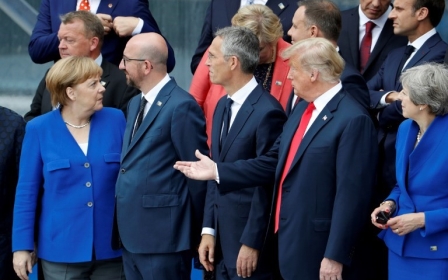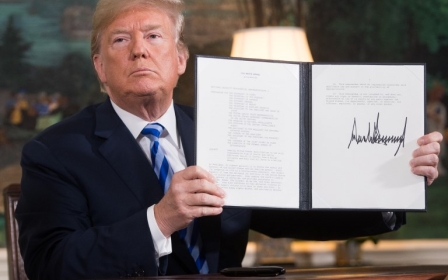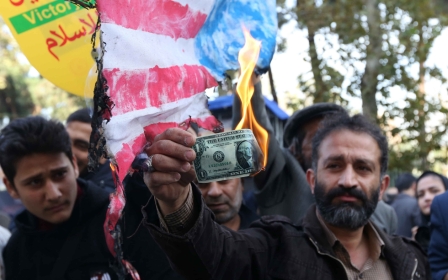Trump wants to impose sanctions gradually on Iran's oil

US President Donald Trump says he wants to gradually impose sanctions on Iran's oil, citing concerns about upsetting energy markets and causing global price spikes.
"With the oil, it's very interesting. We have the toughest sanctions ever imposed, but on oil we want to go a little bit slower because I don't want to drive (up) the oil prices in the world," he told reporters before flying to a midterm campaign event on Monday.
"This has nothing to do with Iran ... I could get the Iran oil down to zero immediately but it would cause a shock to the market. I don't want to lift oil prices."
The US restored sanctions targeting Iran's oil, banking and transport sectors on Monday, and threatened more action as part of a wider effort by the Trump administration to curb Tehran's missile and nuclear programmes and diminish the country's influence in the Middle East, notably its support for proxies in Syria, Yemen and Lebanon.
Trump's moves target Iran's main source of revenue, its oil exports, as well as its financial sector.
"If you notice, oil prices are going down very substantially, despite the fact that already half of their capacity is gone," Trump said, adding "it will be a gradual" imposition of oil sanctions.
US Treasury Secretary Steve Mnuchin said the new sanctions identify more than "700 individuals, entities, aircraft, and vessels," including 300 new targets.
Those sanctions also include 50 Iranian banks and subsidiaries, more than 200 people and vessels in its shipping sector, and Tehran's national airline, Iran Air, and more than 65 of its aircraft, according to a US Treasury statement.
On Friday, a few days before the sanctions came into effect, the US granted waivers to eight Iranian oil importers, including Iraq, Turkey, India, China, South Korea and Japan.
Several of these countries depend partially on Iranian oil, including Turkey, which imports a quarter of its 830,000 barrels per day from its Iranian neighbour, according to a Bloomberg report.
Iraq has also been given an exemption, Brian Hook, the US special representative for Iran, told reporters in a conference call, saying Iraq was working "on reducing Iran's influence and opening Kirkuk, which would be another 200,000 barrels of oil".
The US State Department said the waivers do not include "civil nuclear projects" but that oversight projects at three of Iran's nuclear facilities - Arak, Bushehr, and Fordow - would continue for an unspecified, temporary period of time.
On Monday, international benchmark Brent crude oil futures were up nearly 0.8 percent to $73.41 per barrel and US crude futures were at $63.41, up 0.4 percent.
A 'war situation'
Meanwhile, Iran responded to the US’s tough new sanctions with air defence drills and confident, confrontational rhetoric.
"We are in the war situation," President Hassan Rouhani said in a television address as the sanctions snapped into place.
"We are in the economic war situation. We are confronting a bullying enemy. We have to stand to win."
The US sanctions herald the end of Washington’s involvement in the landmark 2015 deal signed between Iran, the US and other world powers, which was designed to curb Iran’s nuclear ambitions.
Some US sanctions were already reimposed on Iran in August, shortly after Washington pulled out of the 2015 nuclear deal in May. That first round of renewed sanctions reduced Iran's oil exports by a third from when US sanctions were lifted in 2015 as per the JCPOA agreement, according to an earlier Middle East Eye report.
The US sanctions have pitted Washington against several of its key allies in Europe, who remain committed to the nuclear agreement.
At least one staunch US ally in the Middle East welcomed the move, however. On Monday, Israeli Prime Minister Benjamin Netanyahu, who has led an anti-Iran campaign for years, thanked Trump "for a courageous, determined and important decision".
"This day is a historic day," Netanyahu said in a statement.
New MEE newsletter: Jerusalem Dispatch
Sign up to get the latest insights and analysis on Israel-Palestine, alongside Turkey Unpacked and other MEE newsletters
Middle East Eye delivers independent and unrivalled coverage and analysis of the Middle East, North Africa and beyond. To learn more about republishing this content and the associated fees, please fill out this form. More about MEE can be found here.




